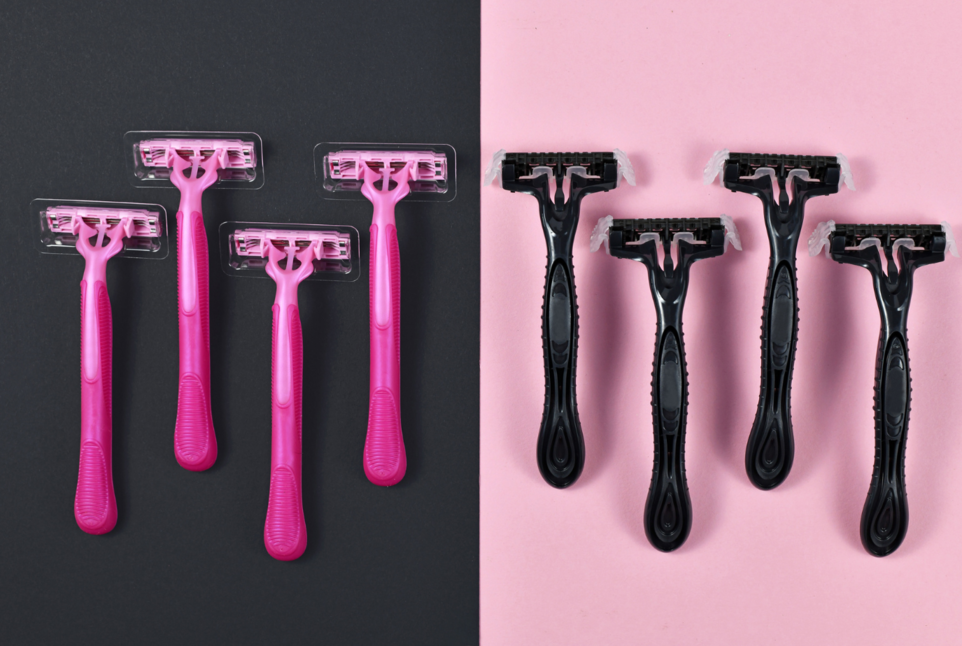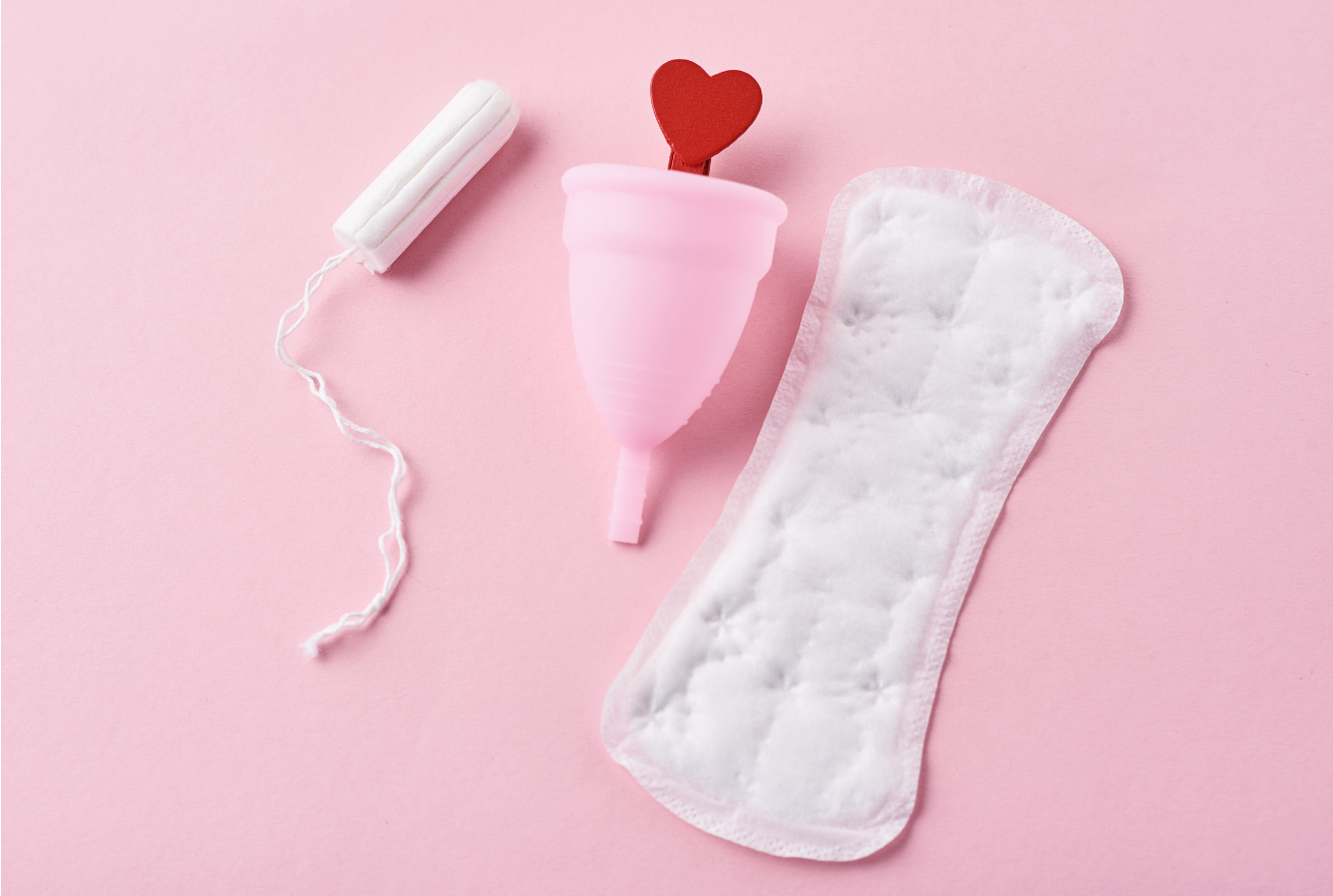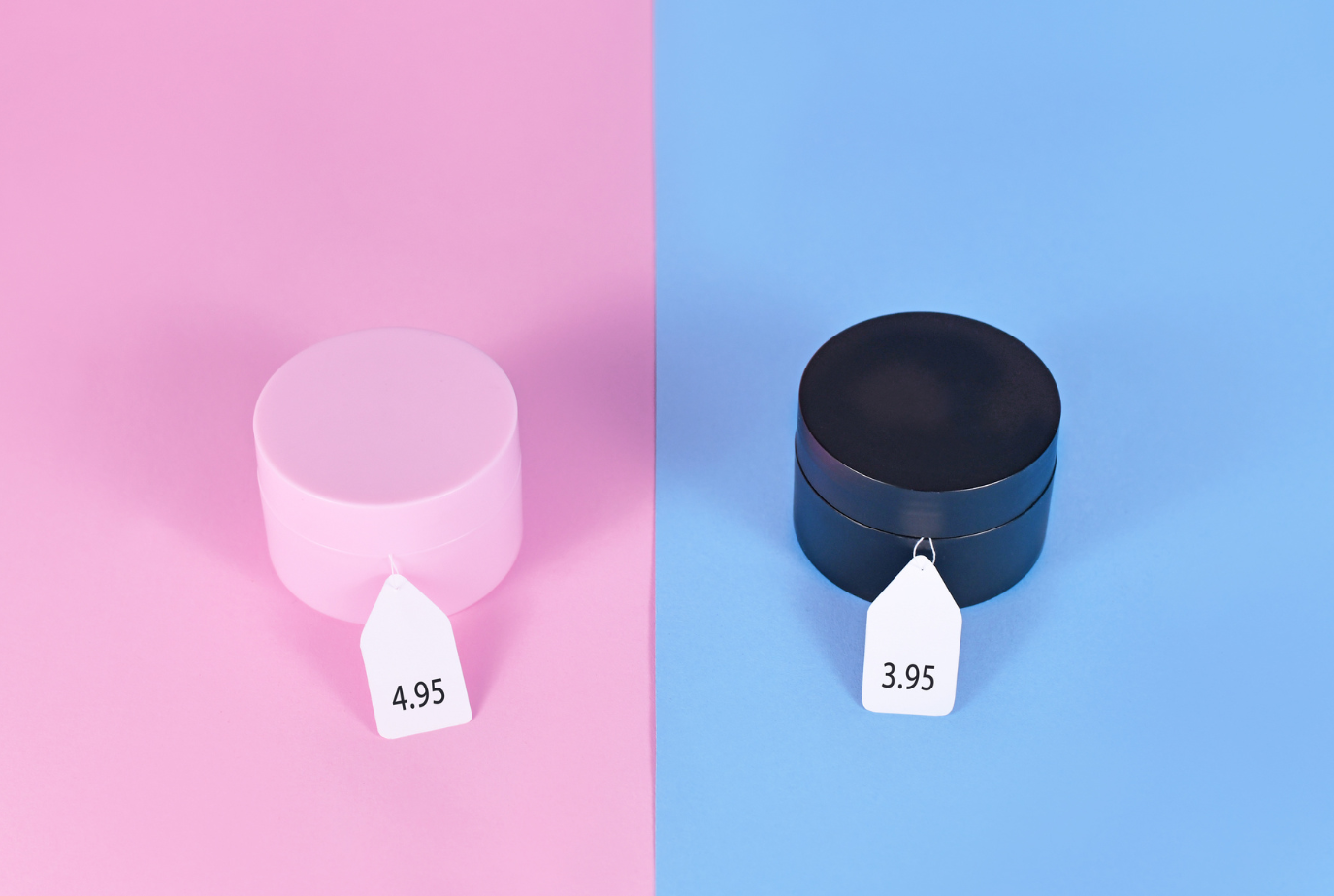As desired for years, countries are starting to focus on burning issues in our societies, where 2022 has been marked with a lot of positive changes regarding the period-products and regulations that will make the lives of all menstruating persons easier.
Tax on being a woman - are we ready for the change?
What is a pink-tax?
Pink-tax is a value added tax for all products that are designed for women*, that are essentially the same as those made for men. In other words, if you would like to buy a rose-scented deodorant, or glossy shampoo, you would pay a much higher price compared to the same product created for men. Name “Pink-tax” comes from the fact that women's products are usually marked and coloured with pink, glitter, shine, and similar.
The issue which arises is that laws and regulations are the ones defining pink-taxes, meaning that governments are able to control how much tax is added to products “for women”.
The acknowledgment of this issue began in the US around the 1990s, once it was established that major laundry services charged more to wash and iron women’s blouses, then men’s button-up shirts

Trend continued in all other services such as haircut salons, skin-care salons, and finally products such as deodorant, razors, lotions, hair-care products, and so on. However, the main focus today is on a pink tax known as tampon-tax where women are in need of menstruation-products every month, and in most countries, the tax on these products is the same as for luxury products.
Are only women affected with pink-tax?
Imagine you’re extremely hungry and standing in line for your favourite burger. Person before you buys the same burger, and they pay € 8. You are finally ordering the burger, and ask to exchange mayo for ketchup. You’re paying € 10 for the burger, without any other added item on your receipt. Why?
Approximately, women are paying 15-20% more compared to men for essentially the same products. When it comes to ingredients of products, they are almost the same however the packaging is different and designed “for women”.

Globally, women make up half of the population, therefore this issue affects not only women, but also families, schools, institutions, companies, etc. since females are usually part of these communities. In general, this extra-tax-money goes from household budgets, and even if women are living alone, we should agree that paying more for the same exact thing, shouldn’t be a standard practice.
Are menstruation and period-products a luxury?
For all of those who have menstruation, the need for period products is seen as a must-have used almost every month. In relation to this, some of the countries in the world have value-added-tax for period products up to 25%. [See 2020 statistics here]
However, if you ever travelled to Germany, France, UK, and many other countries, it’s common to notice that a large pack of tampons costs around 2-4 euros. While in countries which are not advocating for reducing pink-taxes small packs of 8 tampons can be found for approximately 5 euros. We can come to the conclusion that it is possible and cost-effective for a country to regulate the pink-tax and still cover all costs related to period-products.
In the past years, we have seen a lot of good practices being introduced in many countries around the world. Advocating for women’s rights in a way where regulating pink-taxes and offering free hygiene products has a wide impact on the society, where countries are taking part in pro-active care taking, raising awareness and offering tangible support to women.
Let's take a look at the countries which made their societies proud!

Refreshing changes in 2022
As desired for years, countries are starting to focus on burning issues in our societies, where 2022 has been marked with a lot of positive changes regarding the period-products and regulations that will make the lives of all menstruating persons easier.
California
California has introduced a new regulation regarding pink-tax where charging more for women products in general is illegal from January 1, 2023. Studies have shown that products for girls and women, from toys to personal care, are charged 7% more. The bill signed in September, 2022 has established that two products that are essentially for the same purpose should not have different prices just because they target specific gender.
Scotland
In 2022, Scotland became the first country in the world to legalise free sanitary and period-products for the whole population. Four years ago, Scotland introduced and started providing free products to all educational institutions, however the government continued to put their efforts to come to an even higher level when it comes to period-awareness.Now, free period products can be obtained in any pharmacy, cosmetic shop, school, community centre and library. To make it even more available, the government made a period of time where products are available for collection in all public buildings and institutions. Not surprisingly, products are even available for free-order online!
The Netherlands
In 2022, The Netherlands followed Scotland's example and signed a new law which offers free sanitary and period products to low income individuals. This law is coming to implementation in January, 2023.
Spain
Beside reducing pink-taxes and making products more available, Spain decided to extend this to allow a leave of minimum of 3 days per month for women suffering painful periods. From 2023, Spain will be the first country in Europe to follow this model which makes a huge step towards enhancing women’s health policies. Additionally, Spain also has plans to remove pink-tax from products completely. New laws concerning women’s reproductive health are also forming a public fund that will allow young people to apply for free contraceptives and “morning-after pills”. These decisions are actively reducing a taboo when it comes to reproductive and overall health of women, and are helping in raising awareness about gender-related issues in national communities.
Croatia
Just like other Balkan countries, Croatia has one of the highest pink-tax for hygiene and self-care products in Europe. Up to 2022, pink-tax in Croatia was held high at 25%. Luckily, Croatia passed a new law where pink-tax will be reduced to 13% from January, 2023.
Macedonia
Macedonia had a high pink-tax rate at 18% for menstrual products, which will be significantly reduced from 2023. Macedonia announced that all menstrual hygiene products will now have a tax rate at 5%, which is the first country in the Balkans with such a low tax-rate for period-related products. Where there is awareness, there are actions.
As most of these amazing actions came as suggestions of non-profit and civil organisations, we must congratulate on the fact that a lot of countries around the world are passing new laws that are directly in favour of women and are enhancing gender-equality. Major movement is that the European Union removed a requirement to keep all sanitary and period-products with minimum VAT at 5%, which made a huge movement across European countries.
The action was taken after accepting the fact that menstrual products have to be considered as basic-needs products and should be affordable to everyone. These actions are important and they are a step towards the tax system that does not discriminate.
* Text covers issues regarding women and all people who menstruate regardless of their gender identity.




